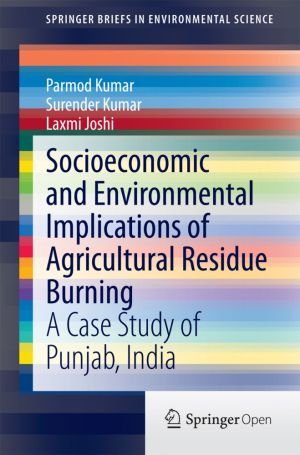Socioeconomic and Environmental Implications of Agricultural Residue Burning
A Case Study of Punjab, India
by Parmod Kumar, Surender Kumar, Laxmi Joshi
DescriptionDetailsHashtagsReport an issue 






Book Description
This book discusses the important issue of the socioeconomic and environmental impacts of agricultural residue burning, common in agricultural practices in many parts of the world. In particular, it focuses on the pollution caused by rice residue burning using primary survey data from Punjab, India. It discusses emerging solutions to agricultural waste burning that are cost-effective in terms of both money and time. The burning of agricultural residue causes severe pollution in land, water and air and contributes to increased ozone levels and climate change in the long term. However, appropriate assessments have not been undertaken so far to demonstrate the relevant impact of agriculture-based pollution, especially residue burning. This book addresses this gap in the literature. Punjab has been used as a case study as it is the chief granary of India, contributing to 27.2 percent of the Indian national produce of rice and 43.8 percent of wheat. It is presumed that the findings from this state will be useful not only for other agricultural areas in India, but across the world. This book, therefore, sensitizes policy makers, researchers and students about the impacts of air pollution caused by agricultural residue burning - a subject not much dealt in the literature - and provides a way forward.This open book is licensed under a Creative Commons License (CC BY-NC). You can download Socioeconomic and Environmental Implications of Agricultural Residue Burning ebook for free in PDF format (3.0 MB).
Book Details
Title
Socioeconomic and Environmental Implications of Agricultural Residue Burning
Subject
Sociology and Social Sciences
Publisher
Springer
Published
2015
Pages
156
Edition
1
Language
English
ISBN13
9788132221463
ISBN10
813222146X
ISBN13 Digital
9788132220145
ISBN10 Digital
8132220145
PDF Size
3.0 MB
License

Related Books
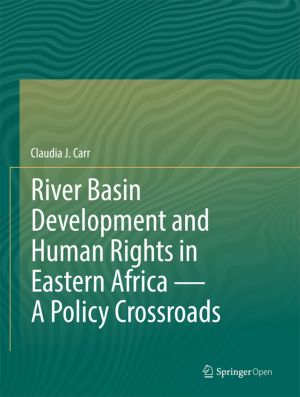
This book offers a devastating look at deeply flawed development processes driven by international finance, African governments and the global consulting industry. It examines major river basin development underway in the semi-arid borderlands of Ethiopia, Kenya and South Sudan and its disastrous human rights consequences for a half-million indigen...
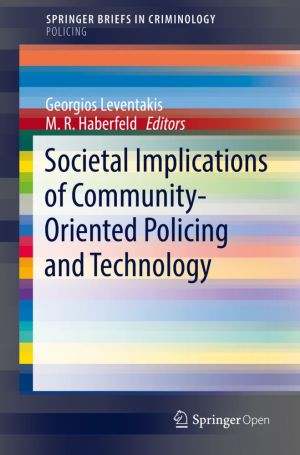
This Brief presents new approaches and innovative challenges to address bringing technology into community-oriented policing efforts. "Community-oriented policing" is an approach that encourages police to develop and maintain personal relationships with citizens and community organizations. By developing these partnerships, the goal is to...

Living Earth Community: Multiple Ways of Being and Knowing is a celebration of the diversity of ways in which humans can relate to the world around them, and an invitation to its readers to partake in planetary coexistence. Innovative, informative, and highly accessible, this interdisciplinary anthology of essays brings together scholars, writers a...
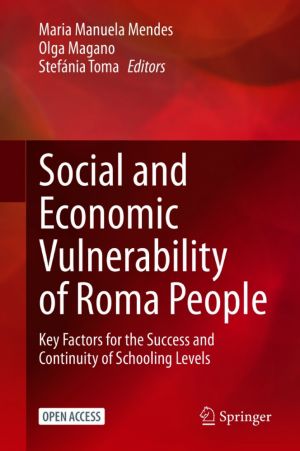
This open volume provides an understanding of the different aspects of success, school continuity and social mobility among European Roma, including the motives justifying the high rates of school dropout and failure among this group. It offers a critical and reflexive perspective about social reality from a multidisciplinary and transversal point ...
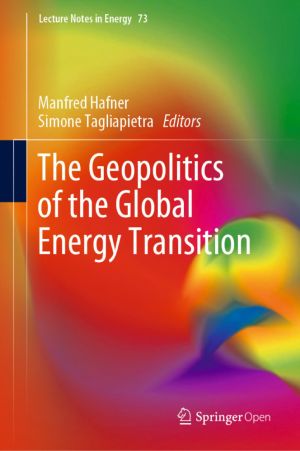
The world is currently undergoing an historic energy transition, driven by increasingly stringent decarbonisation policies and rapid advances in low-carbon technologies. The large-scale shift to low-carbon energy is disrupting the global energy system, impacting whole economies, and changing the political dynamics within and between countries.This ...

This book analyses Iberian expansion by using knowledge accumulated in recent years to test some of the most important theories regarding Europe's economic development. Adopting a comparative perspective, it considers the impact of early globalization on Iberian and Western European institutions, social development and political economies. In ...

